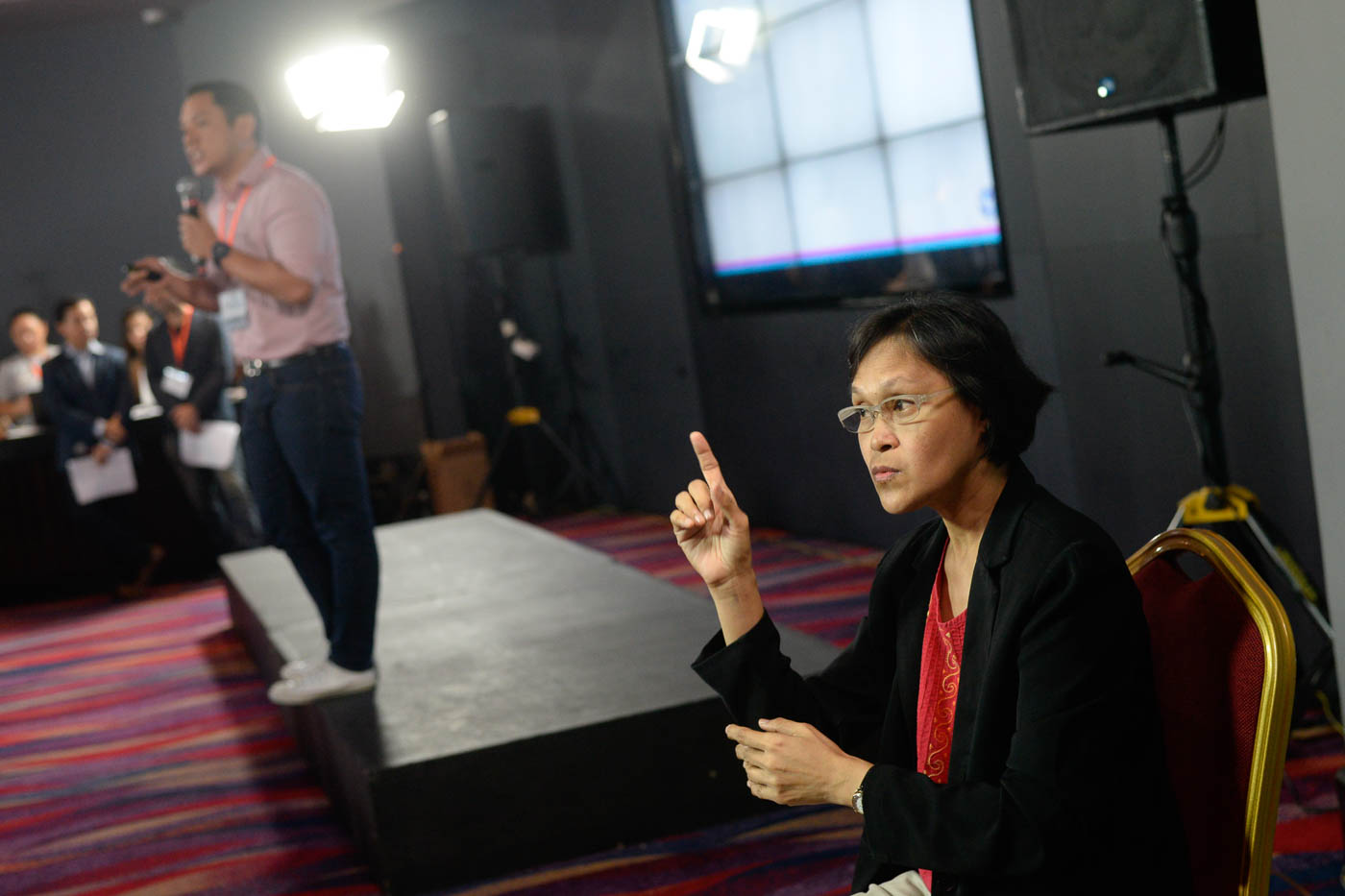 MANILA, Philippines – When their own family doesn’t know sign language, confusion follows. For deaf children, understanding what their families talk about during lunch or dinner is an everyday challenge. They have difficulty watching the news on TV, or learning how to cook and drive.
MANILA, Philippines – When their own family doesn’t know sign language, confusion follows. For deaf children, understanding what their families talk about during lunch or dinner is an everyday challenge. They have difficulty watching the news on TV, or learning how to cook and drive.
Without knowing how to communicate well, deaf children have difficulty developing the values, attitude, and behaviors that are key to their personality. As a result, they become lonely.
Many in the deaf community turn to fellow classmates and schoolmates in schools where sign language is practiced. They also find comrades online – on social media, where one can be understood through the written word or signed conversations recorded on video.
The deaf community in the Philippines is also going online to push for advocacies that will help make life much easier for the sector. (READ: Can PH become a ‘deaf-inclusive’ country?)
Relying on social media
The deaf community relies on social media platforms that allow visual communication, such as Facebook and Facebook Messenger, where they can post videos and pictures.
Instagram is also popular because of the visual nature of the photo-sharing app.
One app that has been particularly popular with the deaf community is Glide, a video chat app launched by an Israeli startup. What makes the chat app a hit for deaf people is the ability to leave a video message for recipients. It’s also easier for deaf people to send video of a signed conversation rather than typing the message. The asynchronous nature of the app’s video messaging feature also prevents both parties from signing simultaneously and interrupting the conversation.
Pushing for FSL
In the Philippines, the deaf community is also using Facebook to push for advocacies and to keep themselves informed about news and current events.
The MATA News Facebook page, for instance, provides news for the deaf community, with videos showing presenters signing news reports.
On Facebook, the Philippine Society of the Deaf is active in posting news for updates on the passage of the Filipino Sign Language (FSL) bill.
The passage of the FSL bill is very close to the heart of the deaf community. Currently, the deaf community uses FSL, American Sign Language (ASL), and Signing Exact English (SEE).
Many want to push for FSL, highlighting its importance in the identity of the Filipino deaf community and its role in removing barriers of accessibility in the lives of deaf Filipinos. FSL, after all, has its own culture. It also has its own syntax in terms of sign.
In August, Senator Paolo Benigno Aquino IV urged lawmakers to pass a bill seeking to declare FSL the national sign language of the Filipino deaf.
Aquino authored Senate Bill 966 or the Filipino Sign Language Act, which was incorporated in Senate Bill 1455, introduced by Senator Nancy Binay.
If enacted into law, FSL will be the official mode of communication of the deaf for government services. It will also be used in broadcast media, schools, and workplaces.
Why FSL is important
According to Precious Benitez, a deaf student from the College of St Benilde, FSL is important for deaf children because it also helps them form their identities as Filipinos.
"Imagine if they used ASL, but they are not American nor were they born in America. We are Filipino and must use Filipino sign language. We are using our own sign language. If there are words we lack, we can borrow some from countries, but this is only temporary language," Benitez said in sign language.
"But if we have our own sign language and deepen [it], we don’t need to borrow. We become 100% Filipino with our 100% Filipino sign language. Unfortunately, most deaf people learn MCE [manually coded English], SEE and ASL – that’s a problem," Benitez added.
For student Ana Dominique Limbaring, FSL can open up opportunities for the deaf who want access to countless offices, hospitals, and other workplaces.
She added that it will also highlight their advocacy for inclusivity in many workplaces, schools, and even media.
“If the FSL bill is passed, our advocacy will be further noticed. Its purpose is for hearing people to be aware about FSL, so they can be given an interpreter who uses FSL, not SEE. This will also lead to better access to hospitals and healthcare. This is why the FSL bill is important,” she said.
Limbaring also said that FSL is important to their identity.
“Why do we need Filipino? So we can communicate more. Imagine, the deaf community will have no means of understanding one another. That is the reason why FSL is a big help to the deaf community – it shapes and deepens our culture, shows our uniqueness, and furthers the appreciation of the deaf identity,” she said. – Rappler.com
Princess Tadeo is a Rappler intern